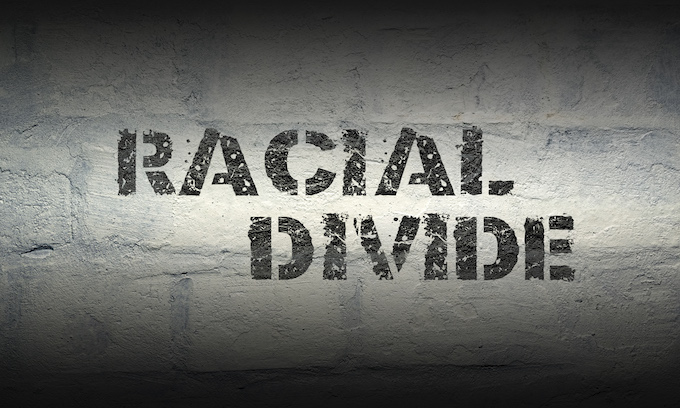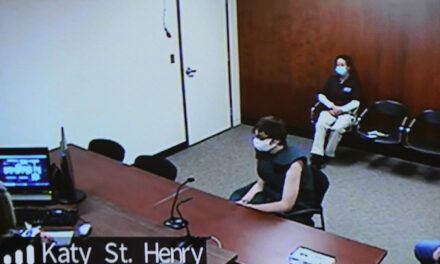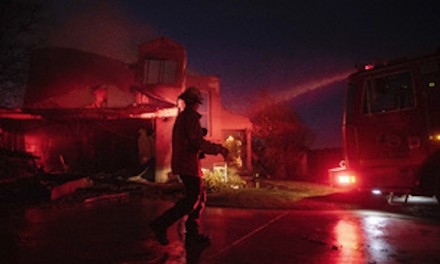Dozens of lawmakers nationwide are calling on the Justice Department to investigate why people of color have been harder hit during the coronavirus pandemic than others — a phenomenon they believe may amount to civil rights violations stemming from ongoing discrimination.
” … While we recognize that every American has been impacted by this pandemic, minority communities have been harmed most severely. … The numbers are alarming,” the lawmakers, including two from Detroit, argue in a May 5 letter to U.S. Attorney General Eric Dreiband.
Among the nearly three dozen lawmakers who signed the letter are Detroit City Council President Pro Tem Mary Sheffield and Detroit councilwoman Raquel Castañeda López, who represents a largely Hispanic community in southwest Detroit.
Detroit, which is almost 80% black and 7% Latino, remains the hardest-hit area in Michigan as more than 1,085 Detroiters have died from the coronavirus, with more than 9,000 reported cases in the city. Wayne County, where Detroit is the county seat, has had more deaths than any other U.S. county outside of New York City.
Meanwhile, blacks make up 14% of Michigan’s population, but account for 40% of the state’s total COVID-19 deaths.
“It’s concerning. It’s upsetting. And for me, it really unmasks the inequality that we knew already existed,” Sheffield said of Detroit’s COVID-19 statistics. “This, in my opinion, shows the historic disinvestment in urban communities.”
Sheffield said the request for a federal investigation into potential civil rights violations also seeks to prevent more deaths and infections from happening in the future.
“In light of a second wave coming, we want to make sure the governments are responding appropriately,” said Sheffield, noting she’s also tired of hearing that “preexisting conditions” like diabetes and high blood pressure are the underlying cause for high COVID-19 rates among African Americans.
“We know that that can be one factor. But we know that that is not the only reason we are seeing the disproportionate numbers,” Sheffield said. “It’s not that easy. It’s not that simplistic and we’re trying to take it farther than that.”
For Councilwoman López, the pandemic highlights problems that have long plagued poor minority communities, such as lack of adequate health care, lack of insurance and mistrust of health professionals.
“Essentially the entire city of Detroit is suffering,” López said. “Whether you’re African American, a Latino or an immigrant — communities of color are disproportionately bearing the burden of this. … It’s pretty blatant.”
Similar COVID-19 disparities are going on across the country. According to the lawmakers’ letter:
— In Chicago, African Americans account for 52% of the city’s confirmed cases, but 72% of its deaths.
— In Kansas, rates of infection are more than double for Latinos than non-Latinos, despite being tested at a significantly higher rate.
— In St. Louis, African Americans account for 64% of all COVID-19 cases, but make up 45% of its population.
— In Louisiana, which has reported more than 21,000 COVID-19 infections, African Americans account for 70% of those cases but only make up about 33% of the state’s population.
Family ravaged by coronavirus begged for tests, hospital care, but was repeatedly denied
“The evidence is clear — in crisis circumstances, such as the ongoing pandemic, race and ethnicity are themselves preexisting conditions,” the lawmakers argue in their letter. “The disparities are merely the most recent nationwide manifestation of policies and practices that fail to protect communities of color and perpetuate racial inequities.”
Medical experts have cited high rates of preexisting conditions like asthma, diabetes, heart disease and high blood pressure, for the deadly impact of the coronavirus on Detroit. But the lawmakers, along with cultural experts, aren’t buying it. They say there’s more at issue.
“While viruses do not discriminate, people do,” the lawmakers argue, holding that “communities of color are no more medically prone to infection to death than other communities.”
“We reject the simplistic notion that preexisting health problems solely account for the increased number of documented COVID-19 infections and deaths in minority communities,” the letter states. “Rather, we believe that long-standing discrimination has served to reinforce vulnerabilities in these communities.”
The lawmakers argue that “racist practices” have contributed to many problems faced by minority communities, including high unemployment rates, homelessness, inadequate housing, lack of medical insurance and quality health care, and mass incarceration.
COVID-19 and Detroit: How racial inequity turned deadly in a city amid a comeback
The lawmakers are also seeking an investigation into whether the White House’s response to the threats posed by the pandemic “perpetuate and exacerbate racial inequality.”
“Accountability is of primary concern,” states the letter, which cites the following issues warrant federal investigation:
— Unequal access by minorities to information and resources , including food, masks and hand sanitizer.
— Unequal distribution of Personal Protective Equipment (PPE) to hospitals and other
— care facilities.
— Did minority neighborhoods have equal access to COVID-19 testing as compared with their wealthier counterparts in nicer neighborhoods?
— Why could hospitals in hard-hit Brooklyn, New York, not acquire rapid testing machines while facilities in other communities could?
— Why was there a lack of universal testing for pregnant women? And were minority or immigrant women tested at the same rates as their Caucasian counterparts?
— Were minority workers deemed essential put at risk by not being provided adequate personal protection?
— Were minority patients presenting at hospitals or other medical environments more readily turned away or refused a COVID-19 test? (The letter cites New York billing data that shows African Americans with possible COVID-19 symptoms were less likely to be treated than were other ethnic groups.)
— Do minorities have disproportionate access to unemployment insurance and stimulus relief?
The letter states that people of color have been especially hard hit financially as they are “overrepresented” in many of the businesses shut down during the pandemic: restaurants, domestic care, hospitality services and migrant work.
The lawmakers argue that awareness of “these inequities” is not enough.
“We must act and bring those accountable for these inequities to justice.”
Contact Tresa Baldas: [email protected].
___
(c)2020 the Detroit Free Press
Visit the Detroit Free Press at www.freep.com
Distributed by Tribune Content Agency, LLC.
—-
This content is published through a licensing agreement with Acquire Media using its NewsEdge technology.



















Recent Comments